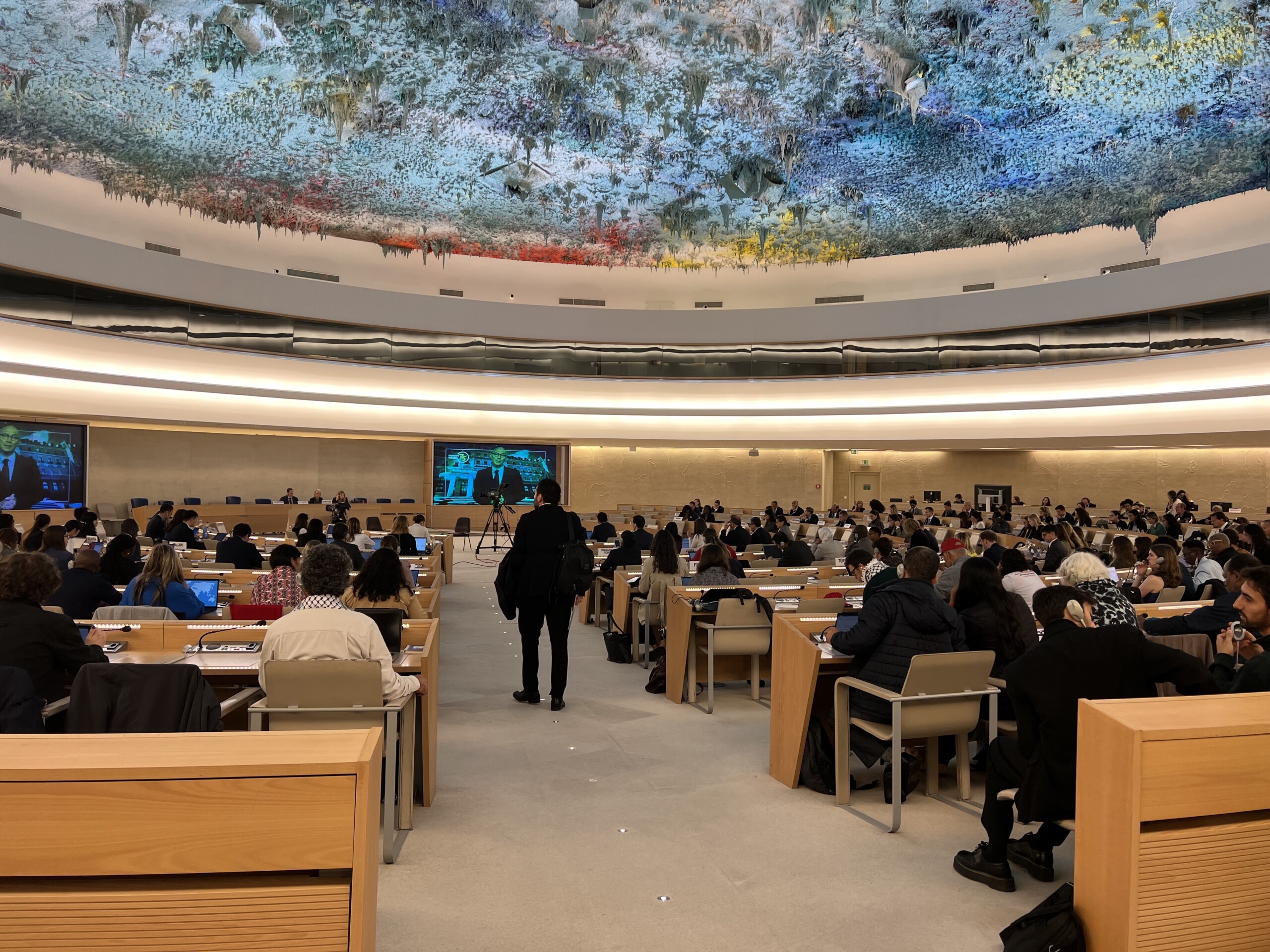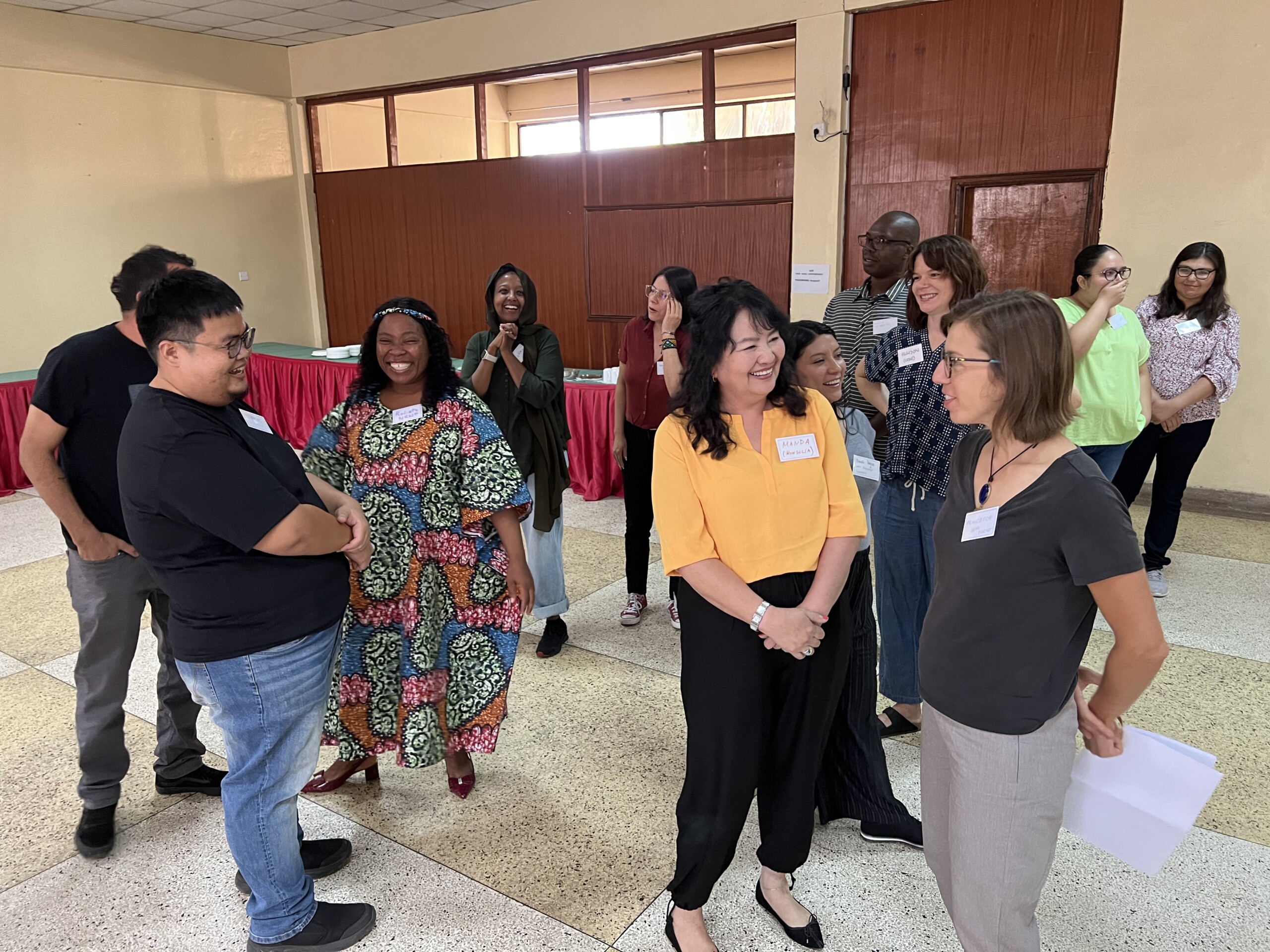We affirm our solidarity with our members in Palestine and the wider civilian population in the besieged Gaza Strip, who have been enduring carpet-bombing, indiscriminate destruction of their homes and fundamental public services, including schools and hospitals, forced displacement, and denial of food, water, sanitation, medicines, and electricity. As a global network working to advance economic, social and cultural rights, including the right to life, ESCR-Net condemns all violence targeting or harming civilians. We denounce the collective punishment of the Palestinian community, and we echo UN concerns that evolving Israeli actions could constitute another ethnic cleansing of Palestinian people. As of 16 October, at least 2,750 Palestinians have been killed and 9,700 wounded in Gaza, and 51 in other parts of Palestine, since the outset of the current conflict.
The current catastrophic situation in Gaza is the culmination of 56 years of military occupation and apartheid imposed by Israel on Palestinians. The warfare launched on Gaza is the immediate response to the attacks carried out against Israelis since 7 October. On 9 October, Israeli Defense Minister Yoav Gallant announced: “I have ordered a complete siege on the Gaza Strip. There will be no electricity, no food, no fuel, everything is closed. We are fighting human animals and we are acting accordingly.” The Coordinator of the Government in the Territories, Maj. Gen. Ghassan Alian echoed a similar message: “Israel has imposed a total blockade on Gaza, no electricity, no water, just damage. You wanted hell, you will get hell.” Two days earlier, Israeli Prime Minister Benjamin Netanyahu had vowed: “We will turn Gaza into a deserted island…We will target each and every corner of the strip.” On Friday, 13th October, the Israeli government ordered over 1.1 million people in North Gaza to evacuate their homes and land within 24 hours, giving signs of an imminent ground invasion. As this order was being given, the Israeli President Isaac Herzog claimed, referring to Gaza: “It is an entire nation out there that is responsible… It is not true this rhetoric about civilians not being aware, not involved.”
Israel’s political and military strategy in Gaza, in particular, the 16-year unlawful blockade (a form of collective punishment that amounts to a war crime) and repeated military attacks, has created one of the world’s worst humanitarian crises, to the extent that the UN has deemed Gaza to be unlivable and has referred to it as an ‘open-air prison.’ Collective punishment of Palestinians by Israel has been repeatedly condemned by UN bodies (including, for instance, UN Commission on Human Rights, Res. 2004/10, preamble and §§ 12 and 15). The 2.3 million Palestinians living in Gaza, about half of whom are children, are highly dependent on foreign aid. As is a routine feature of the Israeli (and Egyptian) blockade on Gaza, movement out of Gaza is nearly impossible for Palestinians. Critical aid has been held up in the Sinai peninsula as the Rafah crossing (between Gaza and Egypt) is effectively closed and subject to Israeli air strikes. In addition to the cuts of food and water supplies, Gaza’s sole power station ran out of fuel on 11 October. This power is vital to producing potable water, handling sewage, and maintaining life-saving equipment in hospitals on the brink of collapse due to treating thousands of wounded Palestinians. International humanitarian law, via Article 54 of Additional Protocol I to the 1949 Geneva Conventions, is clear: “Starvation of civilians as a method of warfare is prohibited. It is prohibited to attack, destroy, remove or render useless objects indispensable to the survival of the civilian population.” UN High Commissioner for Human Rights Volker Türk stressed that: “The imposition of sieges that endanger the lives of civilians by depriving them of goods essential for their survival is prohibited under international humanitarian law.” As several UN Special Procedures pointed out, this “amounts to collective punishment.”
Further, the evacuation order issued by Israel to 1.1 million Palestinians in North Gaza is morally and legally reprehensible, in addition to being impossible to execute. Most families in Gaza have already been forcibly and violently displaced – becoming refugees along with some 750,000 Palestinians – during the founding of the state of Israel in 1948. Many, including UN Special Rapporteur Francesca Albanese, fear that this will be a second Nakba or “catastrophe.” This order neither guarantees the right to return nor ensures the safety of civilians who attempt to comply with it. While some are unable to evacuate, others have been killed while trying to do so via alleged safe routes. Immediately condemning this action, Paula Gaviria Betancur, Special Rapporteur on the human rights of internally displaced persons, emphasized, “Forcible population transfers constitute a crime against humanity, and collective punishment is prohibited under international humanitarian law.” Given the statements of Israeli government and military officials at the highest levels and the mass scale of the violations against Palestinian civilians, members in Palestine, academics, and respected organizations globally have recently called on States to intervene to prevent a potential or impending genocide, alleging that Israel is now “deliberately inflicting on the Palestinian people conditions of life calculated to bring about its physical destruction in whole or in part” (as outlined in Article 2 of the Convention on the Prevention and Punishment of the Crime of Genocide).
ESCR-Net members in Palestine remind us that: “For decades, our organizations have warned against the status quo and the deliberate failure and unwillingness of the international community to address the root causes of the current situation in Palestine—namely, Israel’s settler-colonialism, apartheid, and illegal occupation, as well as the continuous denial of the inalienable rights of the Palestinian people, including the right to self-determination—and to take effective and meaningful measures to address them.” From 1 January until 4 October 2023, 248 Palestinians were killed by Israeli forces or settlers, in addition to the thousands killed in previous years, with the US providing over $3 billion annually in military funding for Israel. These funds have helped to facilitate ongoing occupation and human rights violations in Palestine and beyond and to enrich the military-industrial complex in the US, which holds a powerful influence over government decision-making.
We join calls demanding that the US, the EU, and other UN Member States, as well as the UN Security Council, take immediate and urgent action to stop Israel’s collective punishment of Gaza’s civilian population. The international community must intensify pressure on Israel to immediately ceasefire, rescind evacuation orders amounting to forcible population transfers, and allow humanitarian aid into Gaza in line with the call of the UN Secretary General. The international community has an obligation to ensure that humanitarian law is respected, including preventing ethnic cleansing and genocide. The US and other governments should refuse to send additional weapons or funding to the Israeli military. These same actors must then work to end the root causes of the current situation in Palestine, ensuring the human rights–including the right to self-determination–of all Palestinians.
Members statements:
Joint statements by Al Mezan, Al-Haq, and the Palestinian Centre for Human Rights:
- https://www.alhaq.org/advocacy/21898.html
- https://www.mezan.org/en/post/46275/Palestinian-Organizations-Call-for-Immediate-Action-from-the-International-Community-to-Stop-Israel%E2%80%99s-Reprisals-against-Palestinian-Civilians
- https://mezan.org/en/post/46288/Urgent-Action:-Palestinian-Human-Rights-Organisations-Call-on-Third-States-to-Urgently-Intervene-to-Protect-the-Palestinian-People-Against-Genocide
Al Mezan:
- https://www.mezan.org/en/post/46277/Urgent:-Israel-Announces-Total-Warfare-on-Gaza%E2%80%99s-Civilian-Population,-Employing-Starvation-as-Weapon
- https://mezan.org/en/post/46287/URGENT:-Israel%E2%80%99s-Evacuation-Order-to-1.1-Million-Palestinians-in-Gaza-is-Direct-Forcible-Transfer,-Urgent-Intervention-is-Needed
Al-Haq:
Adalah:
Democracy & Workers’ Rights Center:
Arab NGO Network for Development:
Egyptian Initiative for Personal Rights with other Egyptian human rights organizations:
Abahlali baseMjondolo:
Center for Constitutional Rights:
FIDH:
Amnesty International:
- https://www.amnesty.org/en/latest/news/2023/10/israel-opt-israel-must-lift-illegal-and-inhumane-blockade-on-gaza-as-power-plant-runs-out-of-fuel/
- https://www.amnesty.org/en/latest/news/2023/10/israel-opt-appalling-gaza-evacuation-order-must-be-rescinded-by-israel-immediately/
Observatori DESCA (ESCER Observatory)


